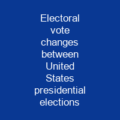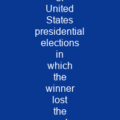What Exactly Is a Snap Election?
A snap election is an early vote initiated by politicians to resolve political impasses or capitalize on electoral opportunities. It’s like when you’re playing a game and decide to change the rules mid-game to give yourself an advantage. In parliamentary systems, this can mean dissolving the entire parliament, while in others, it might involve calling for elections outside their scheduled dates due to political instability or social unrest.
The Power to Call Snap Elections
Typically, the incumbent head of government holds the power to call snap elections. This can result in increased majorities for the ruling party if called at an advantageous time. However, history has shown that these early votes can also backfire, leading to decreased majorities or even opposition wins.
Examples from Around the World
Peru’s Constitution allows for the dissolution of Congress by the President under certain conditions. In Australia, double dissolutions and early elections have been used to resolve conflicts between chambers. In India, snap elections were called due to political instability or coalition issues.
The Impact of Snap Elections
These early votes can significantly alter government outcomes. For instance, in 1963, Liberal Prime Minister Robert Menzies called an early election for the House of Representatives due to a narrow 2-seat majority. In 1974, Gough Whitlam’s Labor Party faced a double dissolution election that focused on their reform agenda and breaking a deadlock in the Senate.
Unexpected Outcomes
Snap elections can sometimes lead to unexpected results. For example, in 2002, Labour Prime Minister Helen Clark announced an early election due to the collapse of her junior coalition partner, the Alliance. Critics claimed it was a snap election and that Clark’s government could have continued to govern.
Historical Snap Elections
In Germany, snap elections were held in 1972 after Chancellor Willy Brandt lost his majority, and again in 1983 when Chancellor Helmut Schmidt’s government was ousted. In the UK, Prime Minister Theresa May called a snap election through a section 2(2) motion in the House of Commons, leading to her party’s biggest landslide victory since 1935.
Why Do Politicians Call Snap Elections?
Politicians call snap elections for various reasons. They might want to resolve political impasses, capitalize on an opportunity, or decide a pressing issue. In some cases, these early votes can lead to significant changes in government or outcomes that were unexpected by the ruling party.
Case Studies
In Peru, snap elections are called under specific conditions set by the Constitution. In Australia, double dissolutions and early elections have been used to resolve conflicts between chambers. In India, snap elections were called due to political instability or coalition issues. These examples highlight how these early votes can significantly impact government outcomes.
Conclusion
Snap elections are a powerful tool in the hands of politicians, but they come with risks and rewards. Whether used to strengthen a party’s position or resolve a deadlock, these early votes often have far-reaching consequences for governance and public policy. As we continue to see in various countries around the world, snap elections can be both a strategic move and a gamble.

You want to know more about Snap election?
This page is based on the article Snap election published in Wikipedia (retrieved on December 16, 2024) and was automatically summarized using artificial intelligence.







